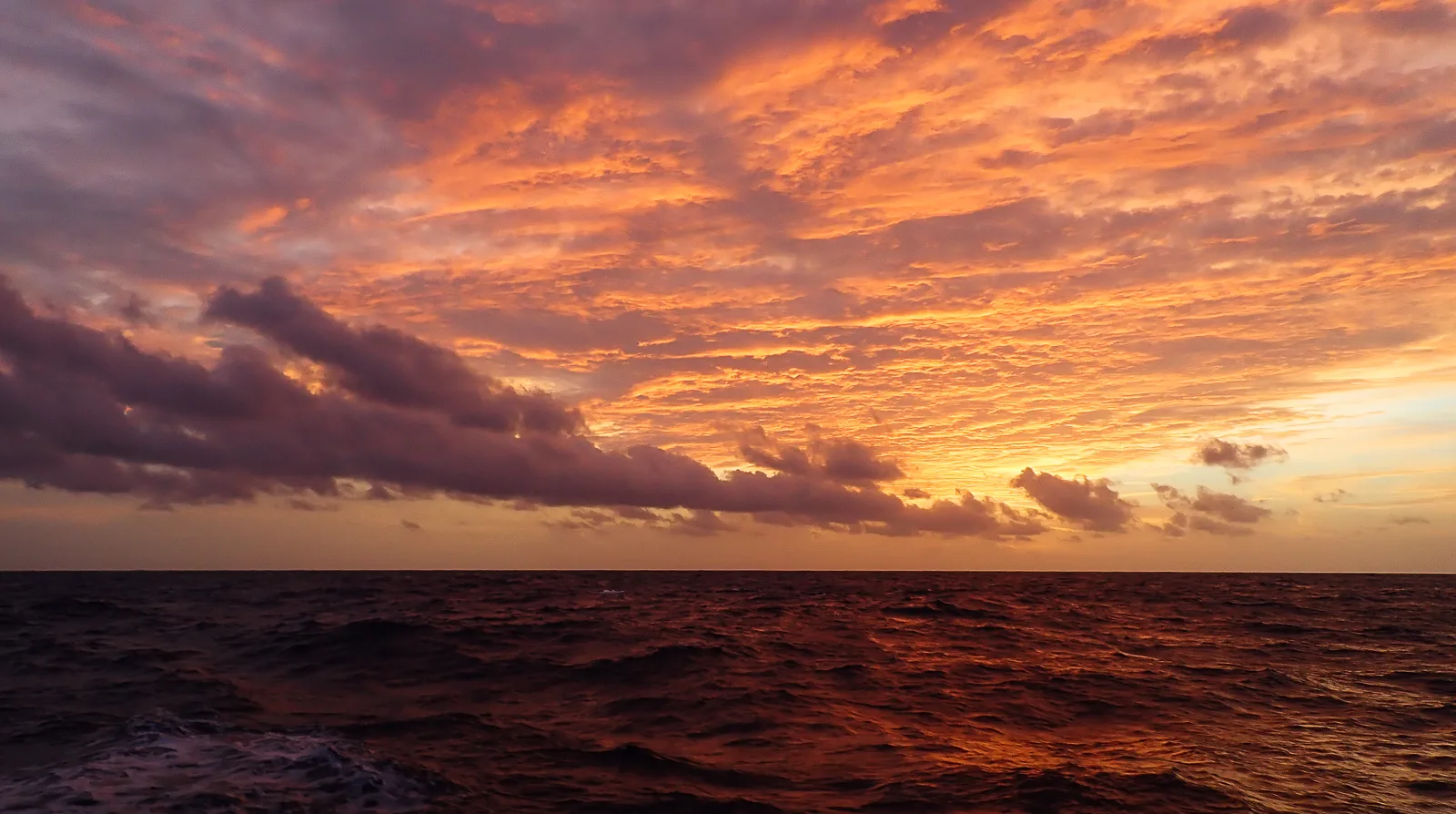News
Grateful to be Sailing

Emily Dailey, Third Scientist
Ship’s Log
Present Location
40° 42.0’ N 068° 52.4’ W
Ship’s Heading, Speed and Sail plan
190°, 7 knots, 4 lowers, JT, and fish
Weather
Cold with stratus clouds – very New England fall
The last two weeks on the Corwith Cramer have been a whirlwind. For the first time in many months, we have students! In some ways, this feels foreign; the last six months aboard have consisted of professional crew transits, weird transitory maintenance periods, and a full haul-out shipyard period. So while the Corwith Cramer has never been empty, she hasn’t felt like the sailing school vessel that she is.
Two weeks ago, students boarded to face crew who were incredibly excited to meet them and to go sailing for science. As we remembered how to run a program, the students enthusiastically jumped right in. They had already invested so much in making this work – while a normal shore component doesn’t really limit the actions students take in their free time, these students were asked to carefully avoid anyone outside their bubble. They barely left campus at all for six weeks, in fact, they did so only to exercise outside. They self-regulated and committed to making this happen, and in doing so, were able to get here and do this awesome thing. I think this investment in keeping the community safe from early on made for some amazing shipmates and I’ve immensely enjoyed getting to know them. They look out for each other – whether that means checking in on how their shipmates are sleeping, getting a seasick friend some water, or making sure that all their watch mates know about the dolphins on the port bow.
So now we’re out here – one big happy crew on Mama Cramer, and I can’t help but reflect how lucky we are. In this moment, while the world is dealing with a pandemic and the country with an election, we get a forced break from the daily news cycle. Now, our daily updates consist of science and deck reports. Our breaking news is that the aft shower is open again. The hard parts about being at sea still exist – we still miss our family and friends and it’s still hard to adjust to a “new normal”, but can you think of a more adaptable group than a crew of students who, for the past seven months, have taken their classes via video call? So yes, hauling lines is still hard and yes galley cleanup can still be nauseating, but we can also safely hug each other and jam out in the main salon. Our community of 36 feels huge after six months of isolation and I think we’re all particularly grateful for the opportunity to be out here.
Thank you to all the family and friends of students and pro crew alike, who supported us during our self-isolation period and respected our bubble. I know that it was probably so hard for you parents, to not be able to hug your student before they headed out to sail with us, but thank you. We’re now almost able to head south and further offshore and that is because our whole extended community worked hard to keep Cramer crew healthy.
Sending hugs to all at home, who are here sailing with us in spirit.
– Emily Dailey, Third Assistant Scientist
PS: Hi Uncle Bernie! Sending you a big hug from the boat.